Looking to replace missing teeth? Single dental implants and dental bridges are popular options. But how do you choose the right one for you? This article compares single dental implants and bridges, covering procedures, costs, and long-term benefits. Make an informed decision for a beautiful, healthy smile.
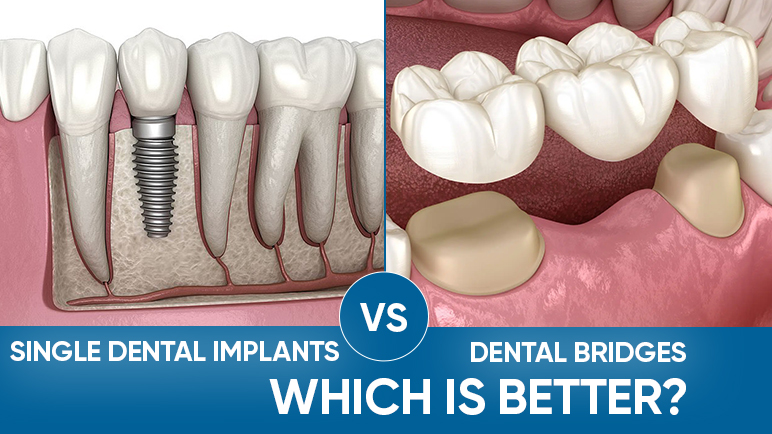
What Are Single Dental Implants?
Single dental implants are a solution for replacing a missing tooth by implanting a titanium post into the jawbone where the lost tooth once resided. This process involves inserting the titanium post into the jawbone and then attaching an artificial crown on top, creating a prosthetic tooth that looks and functions like a natural one.
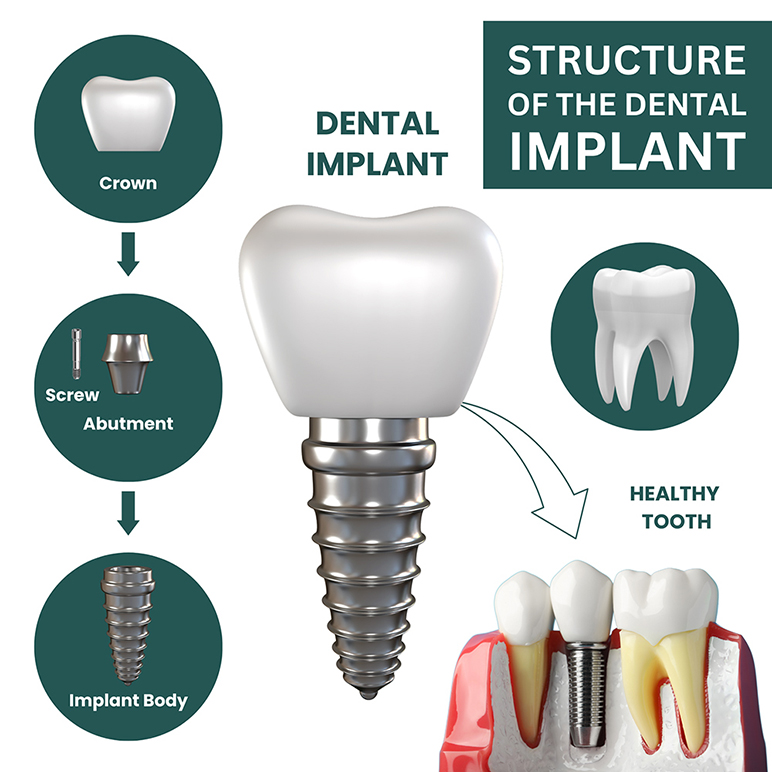
For those missing a single tooth, single tooth implants are the best solution, as they provide long-lasting durability and do not harm adjacent teeth. This method helps prevent bone loss and maintains the jaw structure, something that traditional methods like bridges cannot do.
What Are Dental Bridges?
A dental bridge is another solution for tooth replacement, typically used when one or more consecutive teeth are missing. A bridge consists of artificial crowns attached to the healthy teeth on both sides of the gap. These natural teeth are filed down to serve as anchors for the bridge, effectively filling the space.
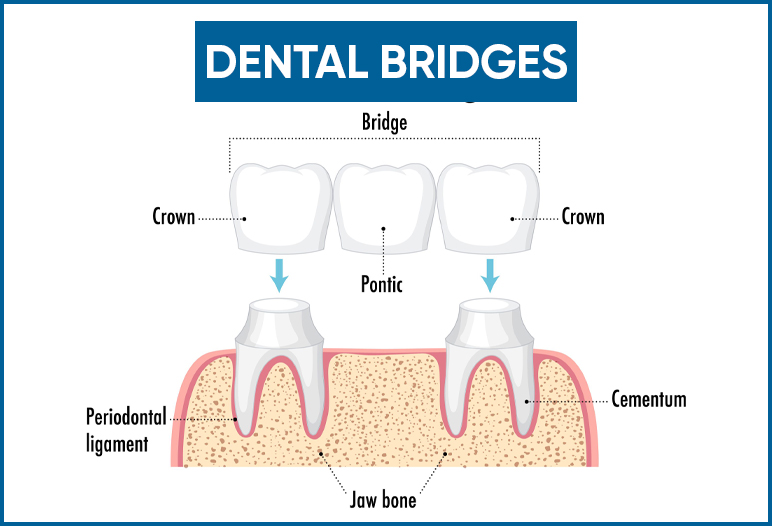
Dental bridges do not require surgery like single dental implants, but they depend on the health of the adjacent teeth. Therefore, if the supporting teeth are not strong, a bridge may not be the best option.
![]() Single dental implants or a dental bridge might be the best solution for you. Consult with our dentist for immediate advice!
Single dental implants or a dental bridge might be the best solution for you. Consult with our dentist for immediate advice!
Key Differences Between Implants and Bridges
When it comes to dental restoration options, implants, and bridges are two popular choices for replacing missing teeth. Though both aim to restore functionality and aesthetics to a patient’s smile, they differ significantly in various aspects. Here are the key differences between implants and bridges:
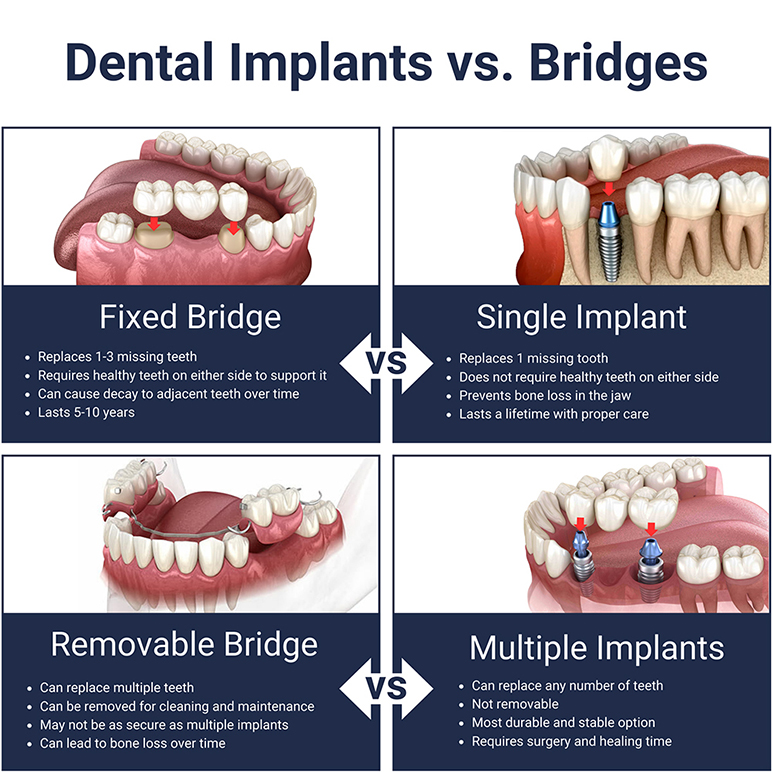
1. Structure and Composition
- Implants: A dental implant consists of three main components: a titanium post that serves as the root, an abutment that connects the post to the crown, and a custom-made crown that is placed on top. The titanium post is surgically inserted into the jawbone, providing a stable foundation.
- Bridges: A dental bridge typically involves anchoring one or more artificial teeth (pontics) to adjacent natural teeth (abutment teeth). The abutment teeth are usually crowned to support the bridge, which spans the gap left by missing teeth.
2. Surgical Procedure
- Implants: The placement of dental implants requires surgery. The process often involves multiple visits, including the initial implant placement, a healing period for osseointegration (where the bone fuses with the implant), and finally, the attachment of the crown.
- Bridges: Getting a bridge is generally less invasive than getting an implant. It usually requires two visits: one for tooth preparation and impressions and another for placing the bridge. No surgical procedure is needed unless there is a need for tooth extraction.
3. Longevity and Durability
- Implants: Dental implants are designed to be a long-term solution and can last 20- 30 years or even longer with proper care. They are highly durable due to the integration with the jawbone.
- Bridges: While bridges can last several years (typically 3- 10 years), their lifespan may be shorter than that of implants. They may require replacement or repair over time, especially if the supporting abutment teeth become damaged or decay.
4. Impact on Adjacent Teeth
- Implants: Since implants are standalone devices that do not rely on neighboring teeth for support, they do not affect adjacent natural teeth. This preserves overall dental health.
- Bridges: Bridges necessitate the alteration of adjacent teeth, as these teeth must be reshaped to accommodate crowns. This can weaken the structure of those teeth over time.
5. Bone Health
- Implants: Implants help maintain bone density in the jaw. When a tooth is lost, the underlying bone can deteriorate over time; implants stimulate the bone, preventing this loss.
- Bridges: Bridges do not provide stimulation to the jawbone. As a result, there may be continued bone loss in the area where the tooth was lost, potentially compromising facial structure and leading to further dental issues.
6. Cost
- Implants: Generally, dental implants tend to be more expensive upfront due to the surgical procedure and materials involved. However, their longevity may offset costs over time.
- Bridges: Bridges are typically less costly initially but could incur additional expenses in the long run if replacements or repairs are necessary.
7. Time Commitment
- Implants: The entire process for implants can take several months, given the surgical nature and healing time required for osseointegration.
- Bridges: The timeframe for receiving a bridge is relatively quick, often completed in just a few weeks.
Factors to Consider When Choosing Between Implants and Bridges
Choosing between dental implants and bridges is a significant decision that can impact your oral health, functionality, and aesthetics. Here are several factors to consider when making this choice:
- Oral Health: If your jawbone is healthy and you want a long-term solution, a dental implant for one tooth may be the ideal choice. However, if your jawbone is insufficient or you prefer to avoid surgery, a bridge could be a better option.
- Budget: While single dental implants may have a higher initial cost, over time they can be more cost-effective due to their durability and minimal need for maintenance.
- Long-Term Goals: If you are seeking a long-term solution without the worry of needing replacements or adjustments, a single dental implants is the better choice compared to bridges.
Choosing a Qualified Dentist for Single Dental Implants
Selecting the right dentist is paramount for the success of your single dental implant procedure. Given the complexity involved in implant surgery, choosing a dentist with extensive experience and expertise in this specialized field is crucial.
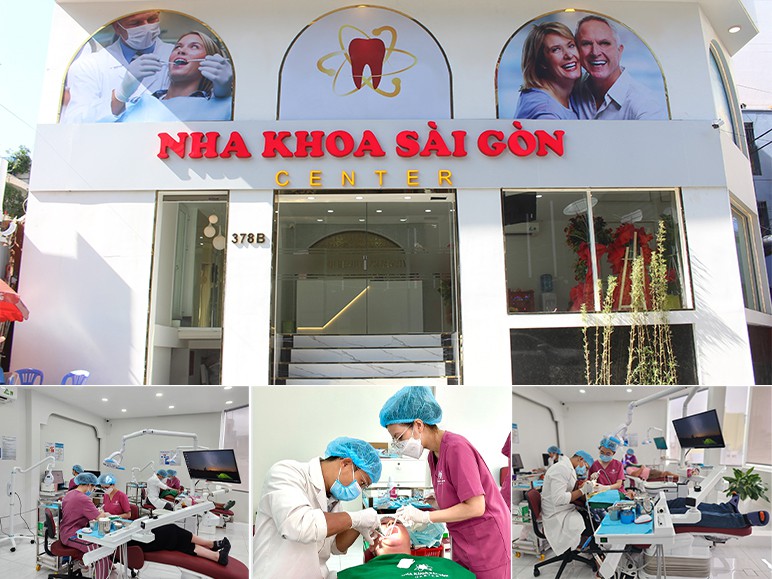
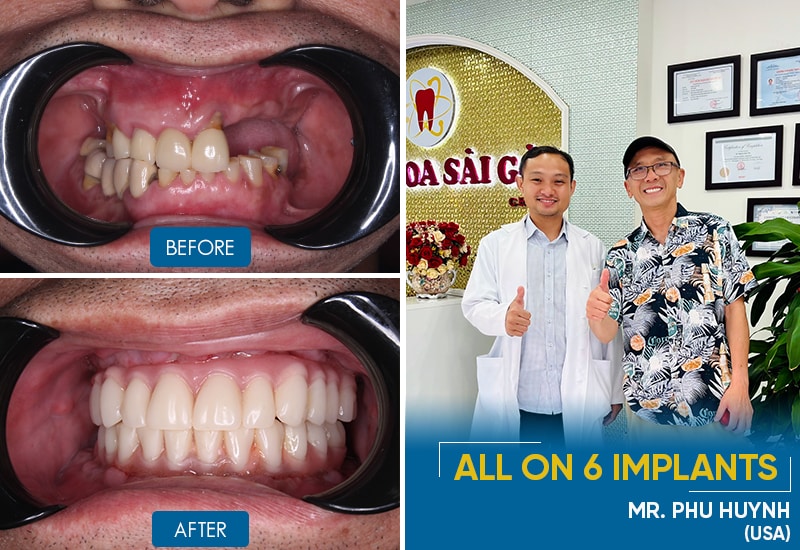
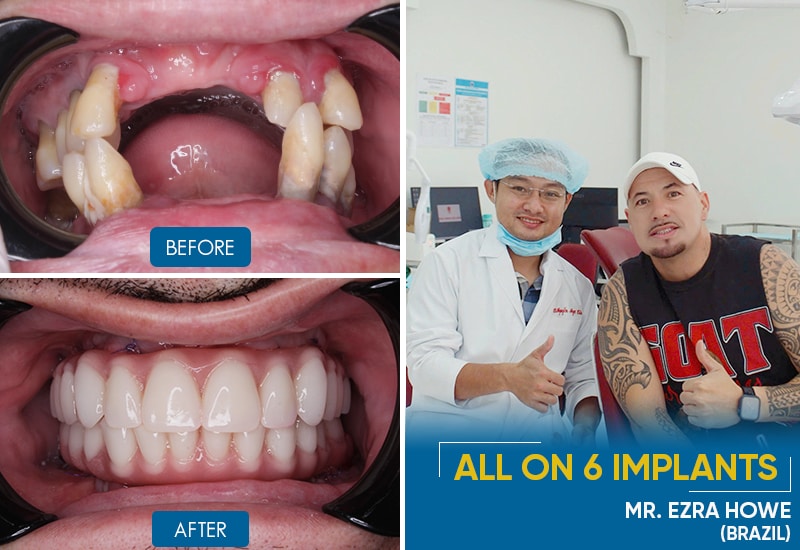

Look for Expertise and Certification
When searching for a qualified dentist, verify that they have undergone rigorous training and possess the necessary certifications in implant dentistry. Dentists who are members of professional organizations such as the American Academy of Implant Dentistry (AAID) or the International Congress of Oral Implantologists (ICOI) demonstrate a commitment to advanced training and adherence to high standards of care.
Additionally, you might inquire whether the dentist participates in ongoing education. Staying current with the latest advancements in dental implant technology and techniques can significantly enhance the quality of care you receive.
Review Their Experience and Success Rates
A dentist’s experience in placing dental implants plays a vital role in determining the procedure’s success. It’s beneficial to gather information about the number of implants they have placed, as well as their overall success rate. Many dentists will gladly share their patient testimonials and case studies, showcasing their clinical expertise.
Listening to previous patients’ experiences at Saigon Dental Implants Center can provide valuable insights into what you can expect during the process and help you feel more confident in your decision.
Assess Their Facility and Technology
A reputable implant dentist should have access to state-of-the-art technology and a well-equipped facility. Advanced imaging equipment, such as 3D cone beam computed tomography (CBCT), can greatly assist in accurately planning and placing implants.
Additionally, inquire about the sterilization protocols in place to protect patient safety during surgeries. A clean, well-organized environment reflects the dentist’s commitment to providing quality care.
Discuss Your Concerns and Expectations
Ultimately, a successful partnership with your dentist relies on open communication. Schedule a consultation to discuss your concerns, expectations, and any questions you may have about the single dental implant process.
SAIGON IMPLANT CENTER – Dental Implant Specialist Vietnam
- Head Clinic: 119 Yersin, Pham Ngu Lao Ward, District 1, Ho Chi Minh City, Vietnam
- Branch Clinic: 378B Vo Van Tan, Ward 5, District 3, Ho Chi Minh City, Vietnam
- Hotline: (+84) 973 199 986
- Email: clinic@saigoncenterdental.com
- Website: saigonimplant.com
- Working Time: Mon – Sat: 08:00 – 18:00 | Sun: 08:00 – 16:00
A qualified dentist will take the time to listen to your needs and provide detailed information about the procedure, helping address any worries you may have and ensuring you’re comfortable and confident in their abilities.
Conclusion
Choosing between single dental implants and bridges depends on several factors, including your oral health, budget, and goals. If you want a long-lasting solution that preserves your jawbone and offers a natural look, a single dental implant is the top choice. However, if you prefer a quicker, non-surgical process with a lower initial cost, a dental bridge might be the right option.
FAQ’s
Can I get both dental implants and dental bridges?
Yes, some patients may opt for a combination, using implants to support a bridge, especially when multiple teeth are missing.
Do implants look and feel like natural teeth?
Yes, well-placed dental implants with custom crowns closely resemble natural teeth in appearance and functionality.
How do I decide which option is right for me?
Consult with your dentist to evaluate your dental health, discuss your needs, and weigh the pros and cons of each option before making a decision.

 Google Reviews
Google Reviews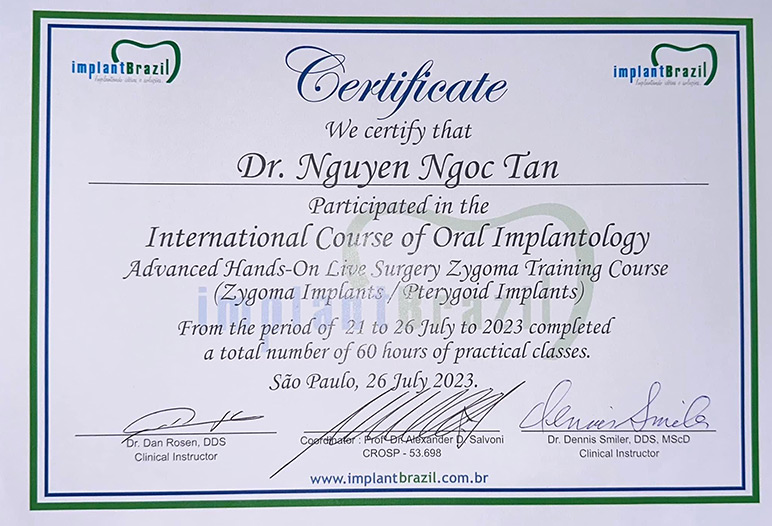


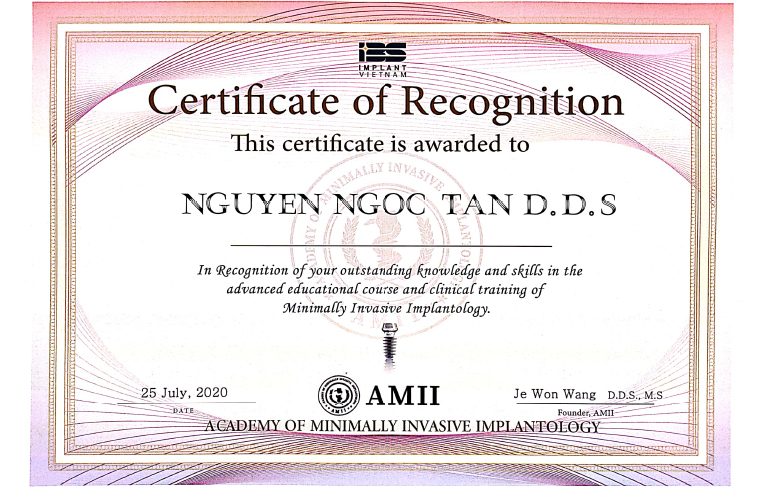


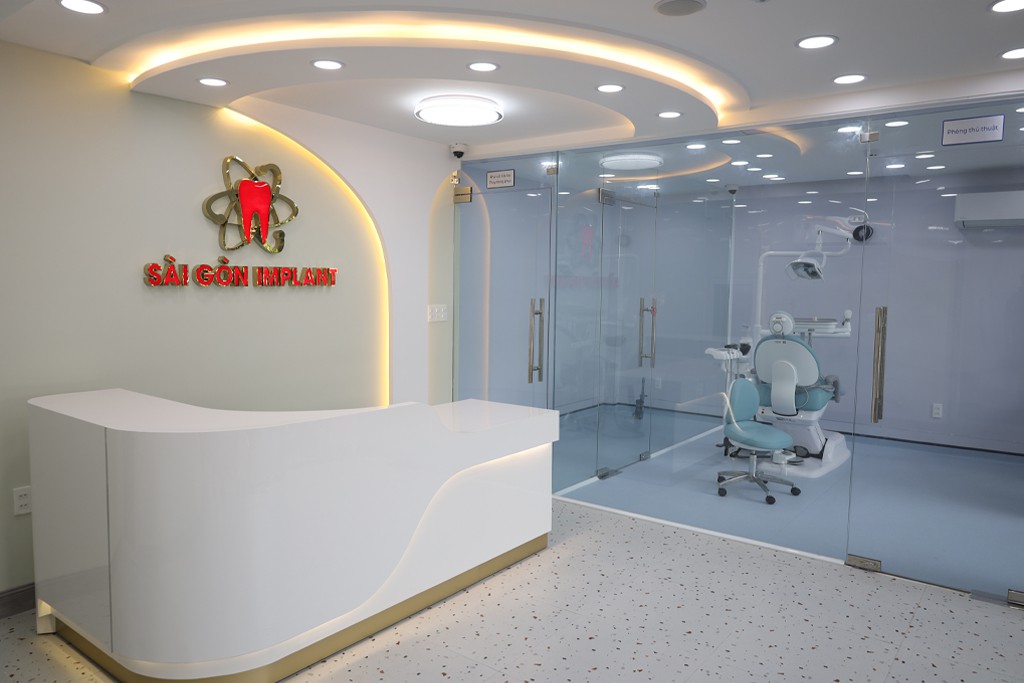

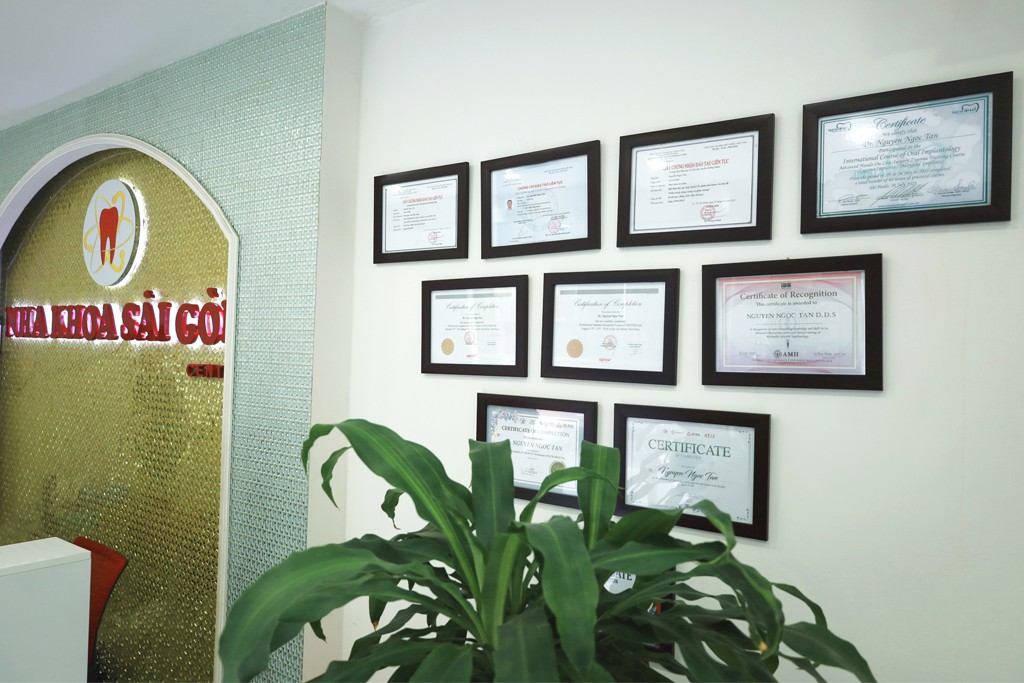
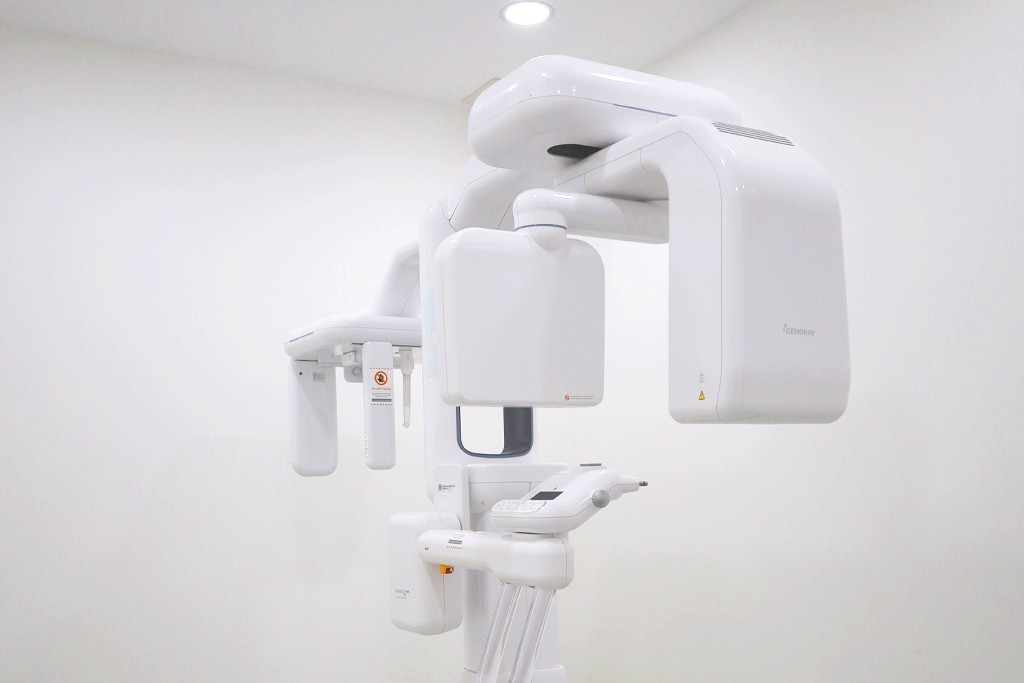

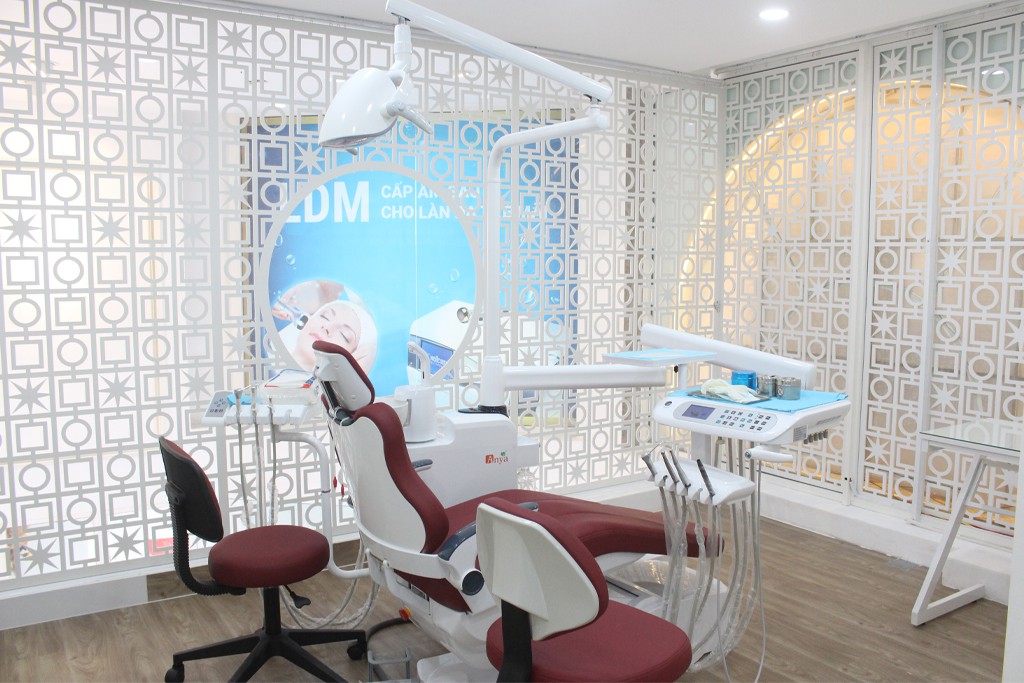


 Call
Call
SAIGON IMPLANT CENTER
Best dentist in Vietnam
Saigon Implant Center - Dental Clinic utilizes the latest technology for specialized treatment in the field of Single implant, full jaw implants, All on 4 implants, All on 6 implants, Zygoma implant....
SAIGON IMPLANT CENTER
Best dentist in Vietnam
Saigon Implant Center - Dental Clinic utilizes the latest technology for specialized treatment in the field of Single implant, full jaw implants, All on 4 implants, All on 6 implants, Zygoma implant....